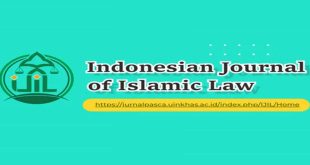A two-day multidisciplinary symposium titled “Unregistered Muslim Marriages: Regulations and Contestations” will take place on April 24-25, 2017 at De Montfort University.
Date: April 24-25, 2017
Venue: De Montfort University, the Gateway, Leicester LE1 9BH, UK
Organizers: Dr Rajnaara Akhtar, De Montfort University, Leicester and Prof. Annelies Moors, University of Amsterdam, Amsterdam ISSR
Non-state registered Muslim marriages or ‘unregistered marriages’ have increasingly become the focus of public policy debates both in Muslim-majority countries and in settings where Muslims are a minority. While the regulation and registration of marriages have a long history tied up with the emergence of the modern nation-state, during the last decades both state institutions and religious authorities have shown a renewed interest in debates about registration, the validity of non-state-registered marriages and the effects of non-registration.
An often-simultaneous discourse has also emerged pertaining to the private informal space occupied by couples who choose to circumvent registration, and the manner and form of intervention within this private space by other interested parties, including by parents, kin, community and/or religious bodies.
This two-day multidisciplinary symposium will bring together researchers who have engaged in concrete empirical research on unregistered marriages. It welcomes abstracts from across academic disciplines including but not limited to, anthropology, law, social history, Islamic studies, sociology, and any other relevant discipline. We also welcome scholars working on this topic elsewhere in Europe and beyond, for a truly international representation of research in the area.
Subjects to be discussed
- The problematization and politicization of non-state registered Muslim marriages – with a particular focus on the conditions under which these marriages have become an issue of debate, who the central actors are within this discourse and with what effects.
- How does the notion of non-state registered marriages (in some contexts labelled as ‘urfi) travel and how is the practice affected by growing transnational migration, mobility and immobility?
- The legal and social interplay between religious and civil marriages, in particular the regulation by nation-states of religious and civil marriages and the tenets of such regulation.
Further, the question of how this is affected by the increased culturalization of citizenship?
- The ceremonial rites and features associated with non-state registered Muslim marriages – with a particular focus on authority and contestations to the performance of such ceremonies from the position of religious authorities and/or activists, potentially leading to the question of polygamy in the context of unregistered marriages.
- The underlying causes and motivations surrounding non-state registered Muslim marriages – including social/community norms, socio-legal considerations, normative religious influences, ethical dilemmas and pragmatic dimensions.
- The significance, impact and effect of socio-demographic profiles of the parties concerned – with particular focus on geographic location, professed religiosity, nationality, ethnicity, class, education, age, etc.
- The impact of non-registration on conflict resolution and divorce proceedings – with particular focus on practice and process for obtaining a religious divorce, and modes and forums for dispute resolution including critical analysis of the role of the mosques, religious institutions and Shariah Councils.
8. The potential human rights implications arising from the lack of state recognition of religious-only marriages – with particular focus on the ECHR Articles 8 right to family life and Article 14 non-discrimination provisions.
 Ijtihad Network Being Wise and Faithful Muslim in the Contemporary World
Ijtihad Network Being Wise and Faithful Muslim in the Contemporary World
